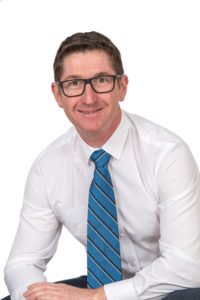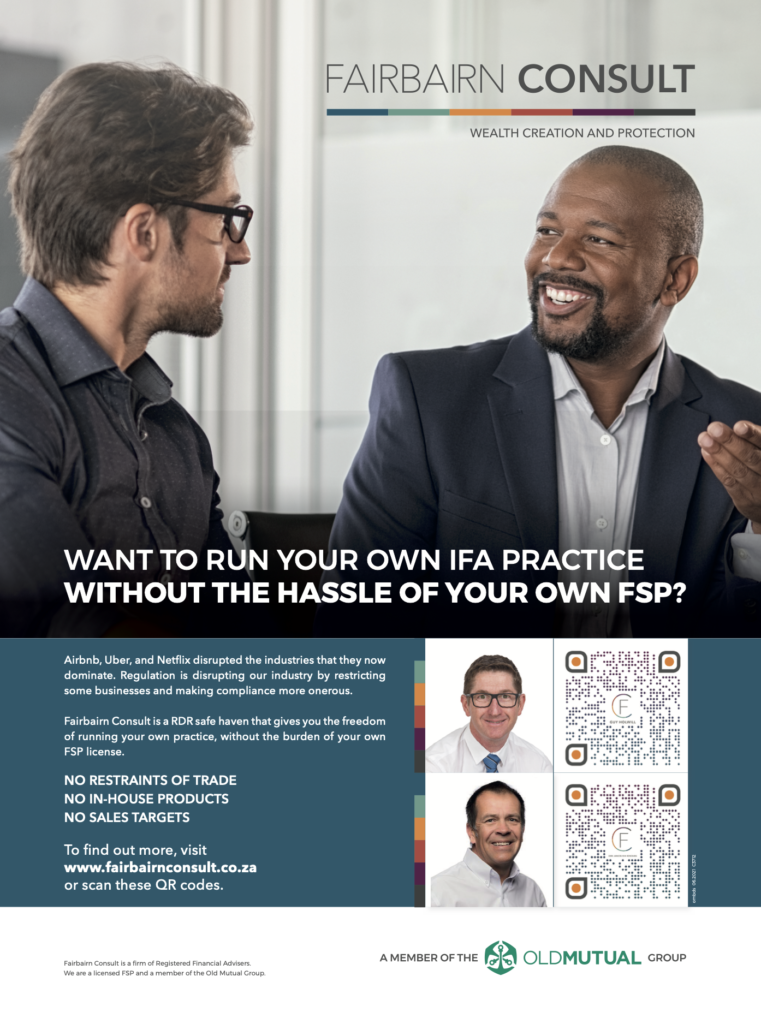Guy Holwill, CEO of Fairbairn Consult

Giving advice has always been about improving client outcomes – otherwise, you’re just flogging products. Until now, advice has pretty much been defined by steps three to six of the financial planning process (the first two are about relationships). These steps are summarized as doing a needs analysis, presenting recommendations, implementing and reviewing solutions. You can think of this as technical advice.
Make no mistake, you will always have to be on top of technical matters to ensure that you select an appropriate solution for your client. However, as we’ve grown to understand concepts like behavioral economics, we’re finding that advisers need to go beyond technical advice and embrace a coaching mindset to improve their clients’ financial outcomes. Don’t get hung up on the words “adviser” and “coach”, rather think about moving from telling your client what to do, to helping them make the right decisions for themselves. This shift can be both subtle and complex, so I’ll use a simple example to show you what I mean.
In his book “The Psychology of Money”, Morgan Housel talks about wealth creation having three components: the return, your savings rate and time. The more you have of each of these components, the more wealth you will create. Optimize all three and the results will be spectacular. Or, at least, the maths will be spectacular – because life is a little more complicated and your clients are people rather than robots.
The Return is the effective annual rate at which your client’s wealth compounds. Traditionally, advisers have tended to focus their advice here because the return is a function of both the product and the underlying investment (advisers tend to know a lot about these, and they enjoy talking about them). However, if you only give advice around the return, you are only advising your client on one of the three components of wealth creation, which means that it is unlikely that they will get spectacular results.
The second component is your Savings Rate, which is how much you save on a monthly or annual basis. In many cases, your client will tell you that they are financially constrained and can only afford R500 or R1000 per month. You can accept this, write the business and move on, or you can help your client think differently. A practical way to do this is to buy a copy of “The Richest Man in Babylon” and lend it to your client. Give them a week or two to read it, then have a conversation about creating wealth that is centred on paying yourself first and the difference between wants and needs. By helping your client to internalize these concepts, they will shift away from the notion of what they can afford now and move towards the idea of wealth creation.
The final component is time, which is how long you have for your money to grow. We understand the miracle of compounding, and you’ve probably spent quite a lot of time explaining it to clients, especially to those who have left it too late who are now going to have to continue working longer than they intended. While you cannot do much for a client in their mid-60’s, you can ensure that your younger clients get the full benefit of the time that they have available by getting them to save from their first paycheque. While the amounts tend to be small at the beginning, what you are actually doing is helping them create a savings habit. This is critical to creating meaningful wealth because your clients will save diligently in their 40’s and 50’s when they are earning decent money.
Take a moment to reflect on this simple example. Are you giving technical advice or are you coaching your clients to achieve better financial outcomes? Beyond this example, are you talking to your clients at their annual reviews, or are you having the right conversations at each of the key milestones in their lives?
As a final thought, always remember that clients who have financial success are happy. And happy clients pay fees and naturally refer people to you. Which is the real win-win.
Fairbairn Consult is a firm of Registered Financial Advisers. We are a licensed FSP and a member of the Old Mutual Group.


